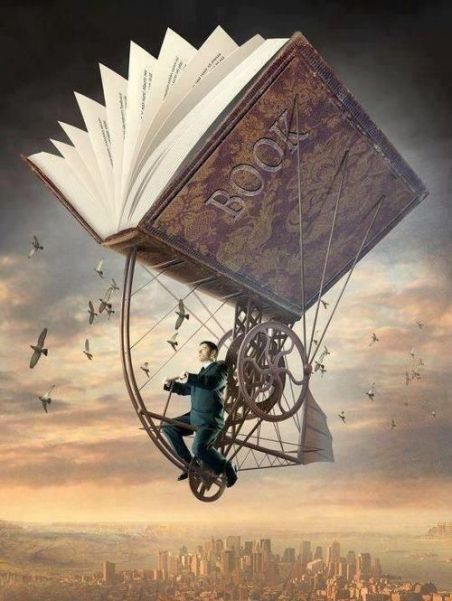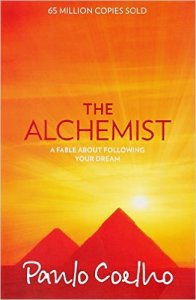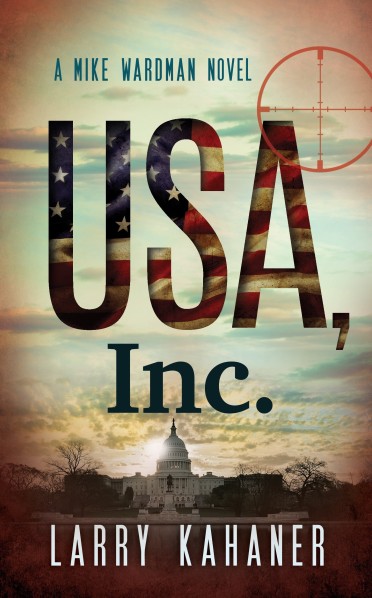“The 10 Things Every Writer Should…” Stop! Don’t Fall for These Ruinous Writing Tips.
It’s a Vicious Ploy. Listen to Me Instead. I’m Smarter and Incredibly Successful.
By Larry Kahaner
All the writing advice you’ve been told is wrong. Pay attention to me. I have written over 3,567 books (all of them bestsellers except for the Charles Manson Joke Book). I also have had over 748 plays produced on Broadway and one off-Broadway, (AK-47, the Musical) and don’t even ask me about my 17 daily, mega-monetized blogs including: How to Write Limericks in Ancient Aramaic Like a Boss. It has 100,567 subscribers not including today.
I’m like, I dunno, the 2 percent of writers who can actually make a living as a writer. And what about that so-called select coterie of scribes who offer you free writing guidance?
They’re purposely feeding you terrible advice so you won’t succeed, because they can’t handle the competition.
“The 10 writers’ instructions for this” and the “12 writer must-dos for that”… it’s all a con. These errant listicles are designed to make you fail. Ask yourself this: If these folks are soooo successful why are they spending their money-making, writing time telling you how to write? Because they want you to flop. It helps them feel better about themselves. It’s that long German word that begins with a Sh sound which I can’t spell, but you know what I mean.
Okay, here we go with their stupid advice and what I suggest instead which, I swear, you can really, really, really, really trust:
1 – Write what you know: Nonsense. Like most people, you haven’t done anything worth writing about. Want proof that writing only about what you know is bad council? How many writers were astronauts yet still wrote super boring Sci-Fi space fiction?
Plenty.
Ditto for first-person serial killer novels including my buddy Phil who crushed random accountants in an olive oil press and his book sucked anyway.
2 – Keep a journal: How silly! If you can write a journal then you can write a real book. Stop wasting time on something nobody will see, you won’t get paid for, and forces you to relive teenage traumas like losing your locker combination.
3 – Write your first draft quickly and edit later: Crazy! Editing is just another way that so-called “successful” writers want you to second guess yourself so you get frustrated and take a minimum wage job instead of pushing them off the bestseller list. And don’t even talk to me about rewriting. It’s a sucker’s game.
4 – Push through writers’ block: Poppycock. You can’t; it’s impossible. Give up now before you have a coronary or pull out your hair in clumps. Is any book or article worth going bald? Famous writers all have lustrous and beautiful hair.
5- Read great writers: Are you kidding me? Let’s say you read Hemingway’s novels. Afterward, you might start writing short, to the point, descriptive, compelling, emotional, and pithy prose. Editors will whine: “Oh, his/her work is derivative of Hemingway. Let’s not publish it.” See what I mean?
6 – Stick to a writing schedule: Re-dunk-you-less! You can’t be tied down to a job like a regular person. You’re a writer, for god’s sake. Free your creativity. Don’t stifle it with a time clock. Those authors who say, “I write everyday between 6 am and 10 am, blah, blah, blah…” just want you to get up early, miss your much-needed rest so you fall asleep in front of your computer. You’re no competition to them if you’re nodding off.
In conclusion, listen to me and not to them. I’m too famous and not at all threatened by your writing career. I guarantee that big-time editors are eager to see your manuscript. They dream about publishing a book with your bio that says you’re “not afraid of breaking the traditional rules of writing.” Publishers love mavericks.
Good luck, not that you’ll need it.














